SBA 7(a) vs 504: Which is Right for You?

Trying to decide what type of loan is best for your business can be confusing. With all the rules, guidelines and regulations, it’s easy to get overwhelmed. But with the right information, you can confidently choose the best loan program for your specific business needs.
At First Bank of the Lake, we are proud to offer government-guaranteed Small Business Administration (SBA) 7(a) and 504 loans. Use the chart below to discover the key differences between these two SBA loans and learn when you should consider each program.
|
|
SBA 7(a) Loans |
SBA 504 Loans |
|
Loan Amount |
Up to $5 million |
Up to $15 million |
|
Common Uses of Loan |
|
|
|
Terms of Loan |
|
|
|
Interest Rate |
Variable and fixed-rate options available |
Variable and fixed-rate options available |
|
Loan Fees |
|
|
When should you consider the SBA 7(a) loan?
The 7(a) loan is the SBA’s most popular loan program for small business owners and many who would not otherwise qualify for a conventional small business loan find that they qualify for the SBA 7(a) program. While many people mistakenly think that this loan is only for those starting a new business, the SBA 7(a) loan is also an excellent financing tool for those who want to expand an established business, buy an existing business, purchase a building, or finance a construction project.
When should you consider the SBA 504 loan?
Unlike the 7(a) loans, the SBA 504 loan program is more specific in terms of what you can use the funding for. Created by the SBA to support and encourage small business growth, and support economic development, the funds from this loan must be allocated toward fixed assets such as commercial real estate and equipment. These loans have low down payments and interest rates.
If you’re purchasing an existing building, expanding or building a new construction, the SBA 504 loan allows business owners to finance construction costs, closing costs and soft costs, including architectural fees, engineering, fees, surveys, title insurance and more within the loan. Machinery, equipment, furniture, fixtures, signage, landscaping and parking lots can also be included. This allows borrowers to retain more of their working capital for other expenses.
If you’re unsure which program would be best for your business, remember that you do not need to go through this process alone. Contact an experienced SBA Preferred Lender like First Bank of the Lake to discuss your options.

As a nationwide SBA Preferred Lender, First Bank of the Lake has the resources and extensive experience needed to tailor solutions for your business and guide you down the path to success. Lending decisions are driven by our team of banking professionals who understand your business. We employ our creativity, understanding, experience and expertise to build the right solution for you.
Schedule a Free SBA Loan Consultation Consultation
All loans are subject to credit approval. Restrictions and limitations may apply. First Bank of the Lake does not provide tax, legal or investment advice. All decisions concerning these matters should be made in conjunction with your professional advisors.

